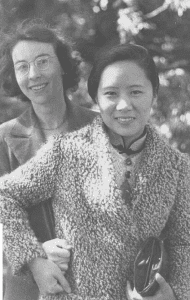
One morning last week, our daughter called and asked if I would drive our granddaughter to high school. I eagerly took on the taxi duty, if only to help share the load of ferrying kids to school, but mostly for the chance to catch up with our granddaughter. During the trip to school that morning, I learned that she was enjoying her drama, phys ed and French classes. But our granddaughter’s favourite subject was science.
“I did an essay on Chien-Shiung Wu,” she said, “and got 100 per cent.”
“I’ve never heard of her,” I admitted.
“She was known as the ‘first lady of physics,’” she said proudly.
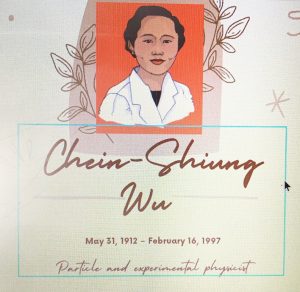
Then, later in the day when my granddaughter emailed me her essay, I learned that Wu had actually worked on the Manhattan Project, the Allied development of nuclear weapons during the Second World War. My granddaughter explained that Wu had studied particle physics and pioneered the process to enrich uranium which would ultimately fuel atomic bombs.
The essay described how Wu had studied physics in her native country, China, but travelled to the U.S. in 1936 for advanced studies at the University of Michigan. She considered her work on atomic particles constructive, and distanced herself from the Manhattan Project.
“I have confidence in humankind (that) we will one day live together peacefully,” she said at the time.
I’ve pondered the life of Dr. Wu and my own granddaughter’s fascination with science during the same week that the returning Taliban regime in Afghanistan announced that girls were now banned from attending school beyond Grade 6. Not only that, but Afghanistan’s supreme leader has also told young women they’re now barred from boarding airplanes unaccompanied by a male relative, that men and women can only visit in public parks on separate days, and that women cannot use mobile phones.
Really? In 2022? Who do the Taliban rulers think they’re fooling?
By coincidence, on a recent trip to Huntsville, I arrived at the venue where I was to speak, well before my presentation that evening. The church hall had a carpet of artificial turf laid out on the floor. At either end of the turf stood a wooden frame – one an oversized basketball net, the other a monkey-bars configuration of wood and steel.
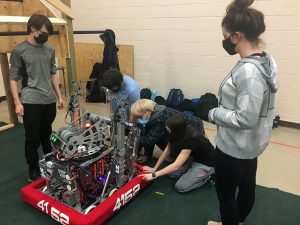
As I entered, I saw a handful of students and their teachers hunkered down over a contraption (about the size of a travel trunk) on a chassis with wheels. Extending up and out from the base of this machine was an aluminum frame, rubber rollers, plastic arms, while at its centre were batteries and a pivoting head akin to R2D2, complete with flashing lights and whirring gyros.
“It’s a semi-autonomous competitive machine,” David Topps told me. He’s a former teacher at Huntsville High School, where for some years now the boys and girls have entered something called First Robotics, a province-wide competition. “And the students are tuning up Robot 4152 for the regional finals this week.”
I watched as an equal number of male and female students installed fresh batteries in 4152, rebooted its computer components, and prepared the robot for the timed sequence of jobs it had to accomplish on the floor. First, it had to range on the shooting-distance to the basketball net.
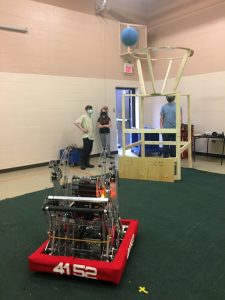
Next, it had to track down several basketballs, rotate and catapult the balls into the net – scoring as many baskets within the time limit as possible.
Finally, it had to travel to the monkey bars and lift itself up three rungs to the top position and hang there as time expired. I was amazed at the speed and accuracy of 4152 to do all those jobs, and at the ease with which the girls and boys guided the robot to accomplish its tasks.
“There’s no blueprint,” one of the Huntsville girls told me. “There are a few rules that you follow. Then, it’s up to us to find something that works. And when it works it’s the best feeling ever!”
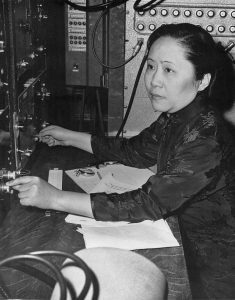
My granddaughter’s science project has drawn me to the more troubling part of Chien-Shiung Wu’s story – the way the physicist was treated as a person of Asian parentage and a woman during her life. When she applied at the University of Michigan women were not allowed to use the front entrances to campus buildings. Undaunted by the misogyny and xenophobia, in 1947, Wu became Columbia University’s first female physics professor, overlooked by the Nobel Prize committee, but awarded the inaugural Wolf Prize for science in 1978.
So, while the fanatics in Kabul turn the clock back to the Dark Ages – closing school after Grade 6 to girls – young women elsewhere are following the model of Dr. Wu, showing the world what it’s missing by excluding half the population.